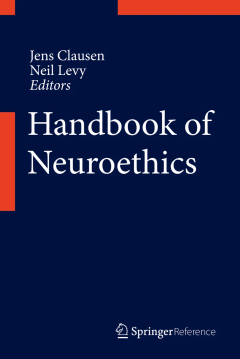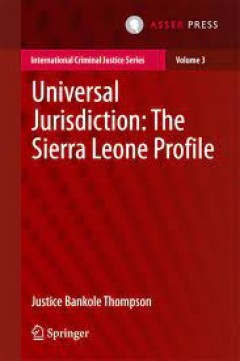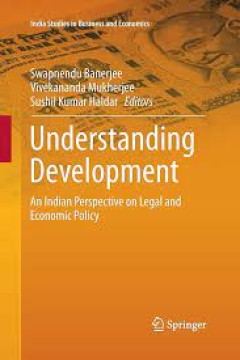Filter by

Handbook of Neuroethics
Based on the study of neuroscientific developments and innovations, examined from different angles, this Handbook provides a comprehensive overview of the international neuroethical debate, and offers unprecedented insights into the impact of neuroscientific research, diagnosis, and therapy. Neuroethics – as a multi-disciplinary and inter-disciplinary endeavor – examines the implications of…
- Edition
- -
- ISBN/ISSN
- 978-94-007-4706-7
- Collation
- XXXII, 1850
- Series Title
- -
- Call Number
- 610 HAN

Game-Day Gangsters Crime and Deviance in Canadian Football
In Game-Day Gangsters, Fogel argues for a review of the systems by which Canadian football is governed and analyzes the reforms proposed by football leagues and by players. Juxtaposing material from interviews with football players and administrators and from media files and legal cases, he explores the discrepancies between the players’ own experiences and the institutional handling of disci…
- Edition
- -
- ISBN/ISSN
- 9781927356531.01
- Collation
- -
- Series Title
- -
- Call Number
- 176 pages

Universal Jurisdiction: The Sierra Leone Profile
The doctrine of universal jurisdiction has evolved throughout modern times in the context of global criminal justice as a paramount agent of combating impunity emanating from international criminality. Sierra Leone, as a member of the international community and the United Nations, has, in recent times, been a pioneer in the progressive application and development of international criminal law …
- Edition
- -
- ISBN/ISSN
- 978-94-6265-054-1
- Collation
- XX, 141
- Series Title
- -
- Call Number
- -
The Principle of Loyalty in EU Law
The book offers the first treatment in English to provide a thorough examination of the legal duties falling under the principle of loyalty in EU public law. Despite its seemingly innocuous wording, in what is now Article 4 (3) TEU, the principle of sincere cooperation has had a significant impact in deepening the reach of EU law within the Member States. The principle has been central to the d…
- Edition
- -
- ISBN/ISSN
- -
- Collation
- -
- Series Title
- -
- Call Number
- 340 KLA p

Human Rights of Older People: Universal and Regional Legal Perspectives
This book focuses on descriptions of the developments in legal frameworks and policies regarding the human rights of older persons. First, it covers the policies adopted and practices developed at the universal system, particularly within the sphere of the United Nations. Second, it includes a side-by-side comparison of the work of regional human rights mechanisms, which have picked up some mom…
- Edition
- -
- ISBN/ISSN
- 978-94-017-7184-9
- Collation
- X, 353
- Series Title
- -
- Call Number
- 340 MAR h

Human Rights of Older People: Universal and Regional Legal Perspectives
This book focuses on descriptions of the developments in legal frameworks and policies regarding the human rights of older persons. First, it covers the policies adopted and practices developed at the universal system, particularly within the sphere of the United Nations. Second, it includes a side-by-side comparison of the work of regional human rights mechanisms, which have picked up some mom…
- Edition
- -
- ISBN/ISSN
- 978-94-017-7184-9
- Collation
- X, 353
- Series Title
- -
- Call Number
- 340

Understanding Test and Exam Results Statistically An Essential Guide for Tea…
This book shares the goal of the classic text How to Lie with Statistics, namely, preventing and correcting statistical misconceptions that are common among practitioners, though its focus is on the educational context. It illustrates and discusses the essentials of educational statistics that will help educational practitioners to do this part of their job properly, i.e., without making concep…
- Edition
- -
- ISBN/ISSN
- 978-981-10-1581-6
- Collation
- 1 b/w illustrations, 10 illustrations in colour
- Series Title
- -
- Call Number
- -

Understanding Development An Indian Perspective on Legal and Economic Policy
This book addresses topical development issues in India, ranging from land acquisition, poverty alleviation programs, labor market issues, the public-private partnership (PPP) model and fiscal federalism. It offers an Indian perspective on the dynamics of economic development and the impact the country’s legal and public policies have on it. Economic development is a dynamic concept – old p…
- Edition
- -
- ISBN/ISSN
- 978-81-322-2455-6
- Collation
- 3 b/w illustrations, 23 illustrations in colour
- Series Title
- -
- Call Number
- -

The European Public Prosecutor’s Office
In 2013 the European Commission launched its legislative proposal to create a European Public Prosecutor’s Office. The proposal provoked fierce debates, politically as well as on the academic level. Many national parliaments opposed and submitted formally their grievances to the Commission. Negotiations on the proposal between Member States are still ongoing. The T.M.C. Asser Instituut held t…
- Edition
- -
- ISBN/ISSN
- 978-94-6265-035-0
- Collation
- X, 285
- Series Title
- -
- Call Number
- -

How to Deal with Climate Change? :Institutional Adaptive Capacity as a Means …
As the evidence for human-induced climate change becomes more obvious, so too does the realisation that it will harshly impact on the natural environment as well as on socio-economic systems. Addressing the unpredictability of multiple sources of global change makes the capacity of governance systems to deal with uncertainty and surprise essential. However, how all these complex processes act i…
- Edition
- -
- ISBN/ISSN
- 978-3-319-15388-9
- Collation
- XIX, 237
- Series Title
- -
- Call Number
- 340 MOS h
 Computer Science, Information & General Works
Computer Science, Information & General Works  Philosophy & Psychology
Philosophy & Psychology  Religion
Religion  Social Sciences
Social Sciences  Language
Language  Pure Science
Pure Science  Applied Sciences
Applied Sciences  Art & Recreation
Art & Recreation  Literature
Literature  History & Geography
History & Geography